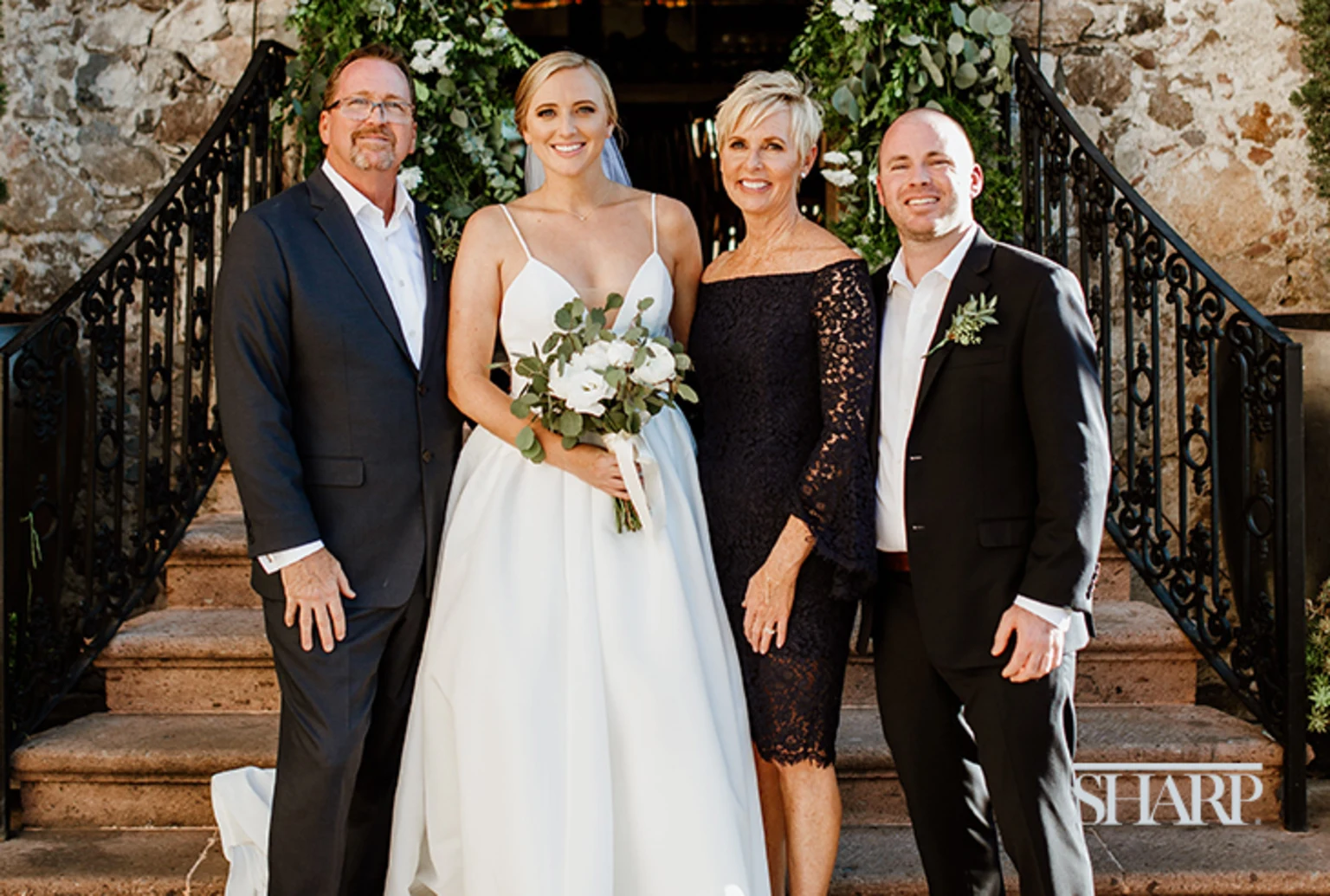
The holiday season brings spike in heart attacks
According to the American Heart Association, more people die from heart attacks during the last week of December than any other time of the year.
When Karen Downtain was diagnosed with stage 3 colon cancer at age 60, it took six simple words from her surgeon to give her the strength to persevere: "We're going to beat this together."
For many, a cancer diagnosis is met with fear and dread. Yet for Karen, knowing she had a chance at survival and that she had the support of those around her, she grew self-confidence she didn't know she had.
"When we relay these diagnoses, we don't know if a patient is going to survive," says
Dr. Matthew Schultzel, a board-certified surgeon specializing in colon and rectal surgery and affiliated with Sharp Memorial Hospital. "We want to be honest and not give a false sense of hope, but the will to fight is hugely important. Patients who give up, give up. And Karen never gave up."
From delayed screening to diagnosis
While health guidelines recommend getting a colonoscopy starting at age 45 (or earlier, if there are symptoms or a family history), Karen admits she dragged her feet. She always took a healthy, holistic approach to life, and had a long-standing fear of anesthesia. When her colonoscopy came back positive for cancer, she was both shocked and regretful.
Almost immediately, she received a call from Dr. Schultzel. "He told me that he didn't want to wait," she says. "He could have had someone in his office call me to schedule surgery, but there I was, in the middle of Target, talking to the doctor that would end up saving my life."
Getting a personal call from her surgeon may have felt special to Karen, but it broke Dr. Schultzel's cardinal rule. "Pre-COVID, I would have never discussed a cancer diagnosis over the phone," he says. "I want to be in the room, holding their hand and walking them through it. But Karen's cancer was so severe, it looked like it was blocking her colon. I wanted to get her into surgery right away."
For Dr. Schultzel, helping people beat cancer is personal, having watched his oldest brother recover from colon cancer at the young age of 40. Sharing his own story helps him connect with his patients, knowing firsthand what it's like to face cancer and win.
Robotic surgery at its finest
Karen's treatment plan was a robotic-assisted right hemicolectomy, which meant removing the right portion of her colon. As a minimally invasive technology, everything is done within the body using tiny incisions — and fluorescence imaging to help ensure the colon continued to maintain a good blood supply.
"Robotic surgery truly is an amazing thing," Dr. Schultzel says. "We're able to keep all of the incisions small. Patients suffer less pain, which means our patients get on their feet faster, and are able to be released from the hospital more quickly. There's less risk of post-surgical complications, and we're able to better manage pain, using less narcotics."
While surgery successfully removed Karen's cancer, her medical team still wanted her to undergo chemotherapy to make sure she was completely cancer-free. Chemotherapy, Karen would find, was the toughest part of her cancer experience.
"Chemo was hard," she says. "I felt sick and couldn't eat. My husband, Patrick, is an amazing cook and still I couldn't eat anything he made me. And to make things worse, we were temporarily staying in Encinitas where there was a red tide and it smelled so bad."
To help her cope, her two children, Molly and Trevor, took turns helping out. They got to know Dr. Schultzel, and worked around the clock on their mother's healing. "Having your children change into the parent role isn't easy for any parent to accept," Karen says. "I know I'm so blessed to have the support, but I made sure they knew that when I recovered, I was 'Mom' again."

Karen Downtain and her husband, Patrick, celebrate the wedding of their daughter, Molly with their son, Trevor.
Grateful and cancer-free
A symbolic last step in Karen's cancer treatment was the removal of the chemotherapy port from her body. Ordinarily, ports are removed by the radiologist who placed it — but Karen felt so connected to Dr. Schultzel, she requested that he have the honor.
"I never want to be the kind of doctor who just checks boxes," Dr. Schultzel says. "When doing any kind of procedure, when my patient is awake, I play relaxing music and let them know they're the most important person in the room. For Karen, we played Jack Johnson-type music when we removed her port, since she wanted to listen to something mellow that reminded her of a tropical getaway. It matched her fun, upbeat attitude that clearly carried her through cancer."
For most surgeons, surgery marks the end of the doctor-patient relationship. But for Dr. Schultzel, he'll see Karen every three to four months to check in with her. For Karen, these regular check-ins serve as a reminder to never delay screenings and always put her health first.
"The best thing you can do for yourself is to get screened," Dr. Schultzel says. "Hesitation could mean the difference between life and death. While Karen waited until she was 60, she had a positive outcome and did great. She's brave and strong, and I respect her for that. It's people like Karen that inspire me to be the best doctor I can possibly be."

Our weekly email brings you the latest health tips, recipes and stories.